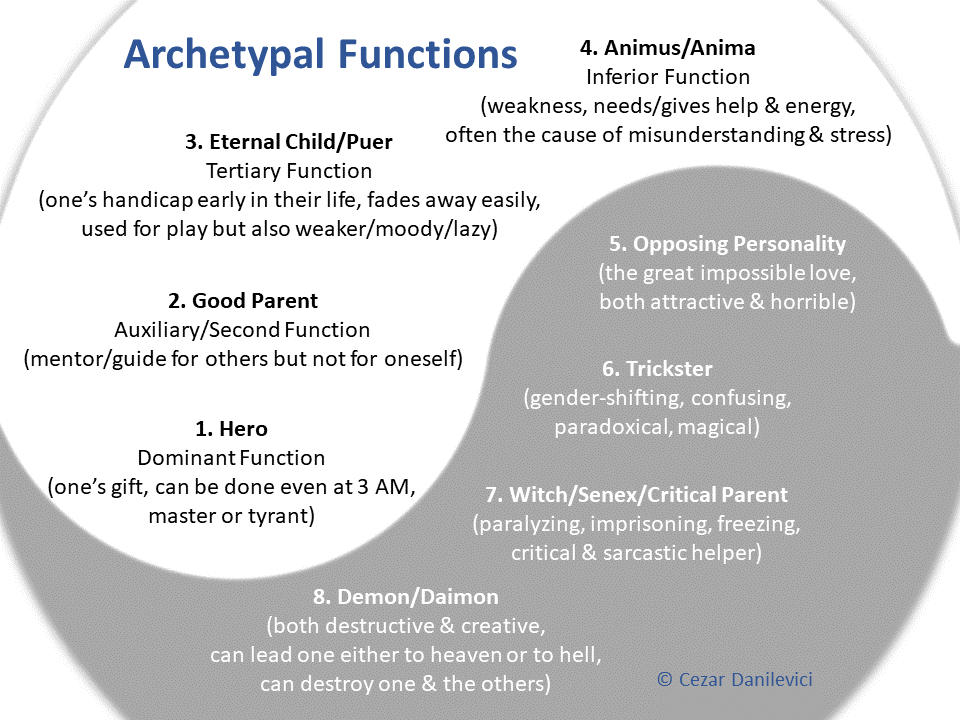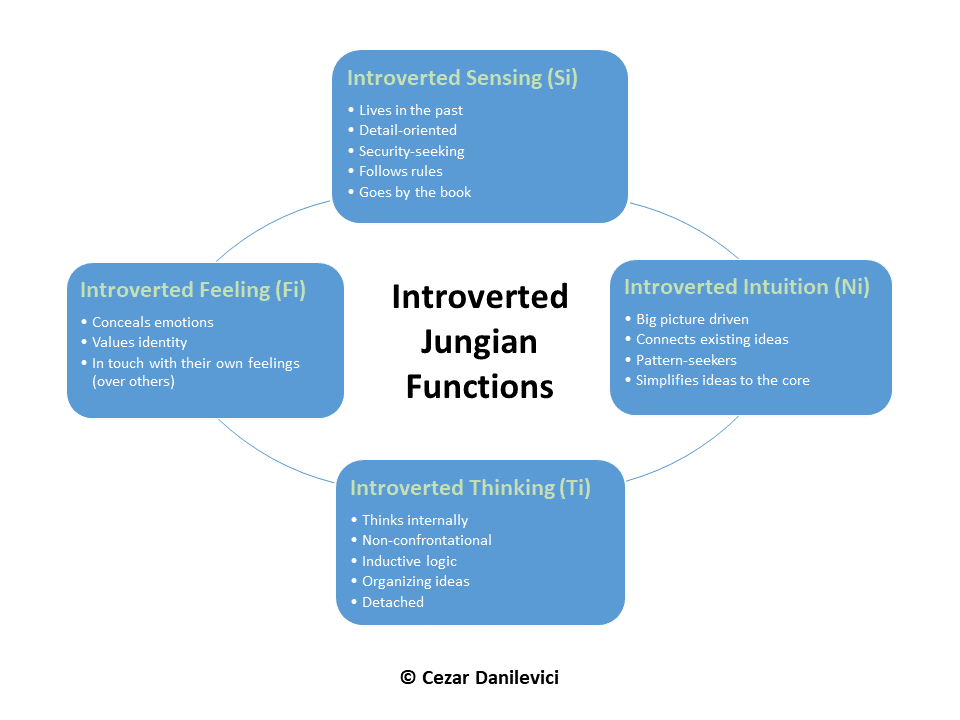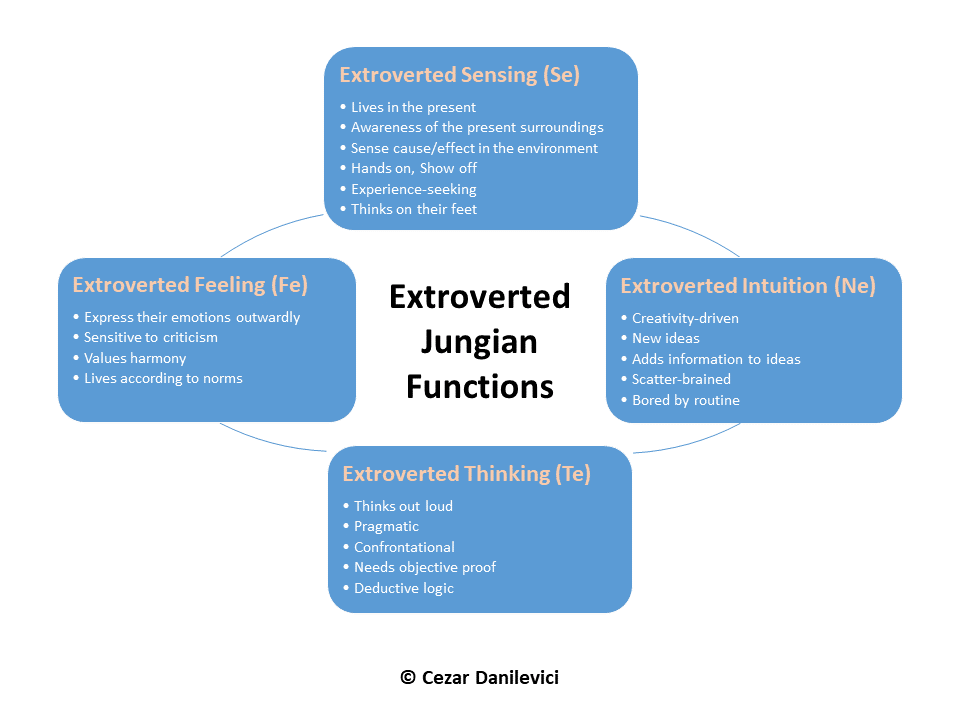Don’t compare your life to others. You have no idea what their journey is all about.
Everybody heard about complexes. For instance, the inferiority complex. Or the Oedipal complex. There are many. Some of them come from the Greek mythology and are the essence or the synthesis of known stories that have been seen over and over again in families and communities, and have been crystalized in archetypal tales that were passed from generation to generation. A lot of theatrical pieces and movie plots have one or several complexes underneath.
As a rule, everybody has complexes, but some of us have more than the others. The complexes help us to achieve what we want or deny us what we desire, depending on the type of complex. They appear at the interface between what is given in life (the circumstances in which we are born) and our freewill. They are an expression of our struggle with reality as it is (and our lack of satisfaction with the current perceived situation) while being driven by the image of the ideal we desire to have.
A typical quality of the complexes is that they are fear-inducing and attractive at the same time. Take a moment and think about those things that attract and scare you at the same time! Well, there is usually a complex somewhere underneath those things… Another rather frightening aspect of the complexes is that they are patterns of feelings, thoughts and behaviors in our psyche that seem to have a life of their own, being rather uncontrollable and tyrannical. This makes working with them probably the upmost challenge in psychotherapy.
I’d like to share here a non-exhaustive list of complexes, for future reference, both for myself and for others who might be interested.
Physical Complexes
- The Complex of Oedipus and Electra. It’s the childish search for the opposite sex parent in the partner while being in competition with the same sex parent (if there is any left). The Oedipus male patient will seek the mother in his wife while being in competition with his father. The Electra female patient will seek the father in her husband while entering in competition with her mother. What is searched for? Attention, attachment, love. This complex is highly common in population. And you often see in practice women romancing elder men who resemble their fathers, as well as men being attracted by older women… as challenging a sight this might be…
- The Complex of Cain. It’s the rivalry among brothers/sisters, which is natural and degenerates in conflict if there is no proper education for love and respect among siblings. The sibling rivalry is a diagnosis in pediatric psychiatry, witness of the frequency of this complex. The many trials in court between brothers and sisters are also a proof of this complex.
- The Complex of Diana. The desire of women to be powerful and masculine, leading to truly “masculine females”. In mythology, Diana was the goddess of hunting, wild animals, protector of fertility and of childbirth, but also a virgin. A lot of professionally successful women today clearly exhibit the Diana complex. Also, the rather frequent situation of a wife who is active both at job and involved in children’s education (the “heroic mother”) while the husband is weak, colorless and regressed, dealing with housework, possibly on a prolonged sick leave or working part-time, must be a clue. As much applauded as it might be this situation nowadays, it’s a (sexual) role inversion that involves huge suffering, suicidality and a micro-traumatic way of life.
- The Complex of Delilah. It’s the biblical story of Samson and Delilah, where the woman – a femme fatale – kills her man by making him reveal his most precious (and vital) secret (where his power is to be found). She is bribed to make Samson vulnerable and achieves her plans by complaining to Samson that he does not trust her. Each psychotherapy office is full of stories of insecure but revengeful women…
- The Castration Complex. It’s a very common complex when parents criticize in an aggressive manner their children. Or, to put it more emphatic, they cut their wings. A more subtle type of castration is when you do not allow the other one to develop and do the things he/she is fully able to do, while instilling the fear of failure and the idea that they are not capable, blaming them after and stimulating their dependence. Many wives are also castrating their husbands; practically, every criticism is the enacting of the castration complex.
- The Spectacular Complex. In the age of social media, this complex is widely spread. It’s the histrionic wish to be admired and the emergence of an expansive and eccentric behavior, going to narcissistic and even grotesque depths. Tattoos, piercing, plastic surgery, being an influencer – all these are good examples.
Attitudinal Complexes
- The Demosthenes Complex. Demosthenes is known as a great orator and a skilled statesman, but he had speech disorders in his early years and was highly timid. He defeated his weakness and his stuttering through hard work, hence becoming the contrary of who he really was. In practice you sometimes encounter sexually impotent males who overcompensate with political and managerial skills, or are even great speakers just like Demosthenes was…
- The Authority Complex. A frequent complex in authoritarian regimes and societies, it involves either an exaggerated submissiveness or rebelling against the figures of authority (the State, the tyrant). In the early years, the authority complex develops against the oppressive parents (or their perceived oppression).
- The Cinderella Complex. I guess you know the story: the marginalized child, abused by his/her parents, is inhibiting him/her-self in the outer relationships and waits for someone to miraculously appear and change his predestined miserable life. If someone waits for a miracle or waits to be discovered, think of Cinderella!
Complexes of the Self
- The inferiority and superiority Complexes. Our basic position in life is that of inferiority and this must be accepted while hoping and working to be less inferior. When this becomes a problem, this vulnerability creates many more problems. Some people prefer to go in the opposite direction and act like superior beings, but in reality, the fact that they need to look good/powerful/etc. reveals their inferiority underneath. This complex alone is probably the most important of all and stays at the origin of other complexes, if not all…
- The Animus/Anima Complex. The Anima is the feminine part in men and Animus is the masculine part in women. In transsexuals or homosexuals this becomes very complicated. The complex appears when there is an incompleteness at this level, when one cannot assume his/her/their identity, or when there are issues linked to sex, sexuality and gender. The discussion is huge these days about this subject, so I won’t insist. Typically however, this complex is encountered when there are women who need to prove to themselves (or others) that they truly are feminine (sometimes they need to become prostitutes to do so, or have several relationships), or when men do excessive things so as to prove that they are masculine (wealth accumulation, cheating, excessive/extreme sports, hunting, you name it).
- The Medea Complex. This complex comes also from a mythological story and has several interpretations as Medea herself has an eventful life. The complex I know deals with the situation in which the mother kills her children as a revenge for the fact that her husband (and children’s father) has abandoned her. In single mothers there is often a subtle desire to punish their child(ren) for… well… the simple fact of being born. In practice, this is a rather frequent sight… and not a pleasant one.
- The Orestes Complex. Also a mythological story, it involves the son who kills his mother because he was given to his sister to be raised and looked after. In large families, where older siblings are looking after the younger ones while the parents are away working, this complex is not unusual.
The list of complexes can continue: the Abandonment Complex (the child is abandoned at birth), the Jocasta Complex (the incestuous relationship between the mother and her boy leading to the inability of the later to get married or be in a couple, remaining in celibacy until the end of his life), the Maternal Complex (the strong attachment of the child to his mother that leads to the divorce of the child), the Griselda Complex (the father refuses the marriage of his daughter because he doesn’t want to “share” her with his son-in-law), the Quasimodo Complex (unshared love), the Power Complex (“me before everybody else!”), the Failure Complex (“continuous failure and fear of it”), etc. There lists of complexes on the internet, just give them a search (Adonis, Cassandra, Don Juan, Icarus, Ophelia, Laius, Jonah, Lolita, Peter Pan, Prometheus, Superman, Messianic Complex, Savior Complex, God Complex, etc.)… But the main idea is that, if you are a therapist with a good memory, reading (or reading again) the mythological tales can help you recognize patterns that are there, in the population, for thousands of years. Knowing the story, and especially how it ends, can act both as a guide in solving the psychotherapy issues, but at the same time can offer a basis for discussion, as the patients love storytelling and using metaphor, while avoiding a discussion that tends to be “too serious”.
How to “heal” a complex? If you submit to it, you maintain it. If you fight against it, you go in the other extreme and it defeats you there as well. Sometimes the best thing to do is to become aware of your complex and avoid the temptation to fight against it. It’s an exercise of acceptance of your own tale(s) and of assuming what you do, and less of confronting these powerful programs emerging from our own depths.
—
Related Infographics:





